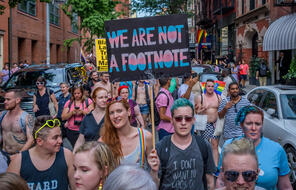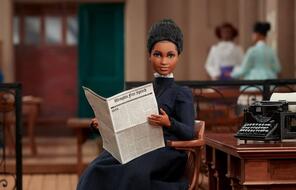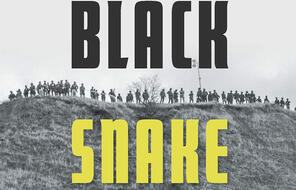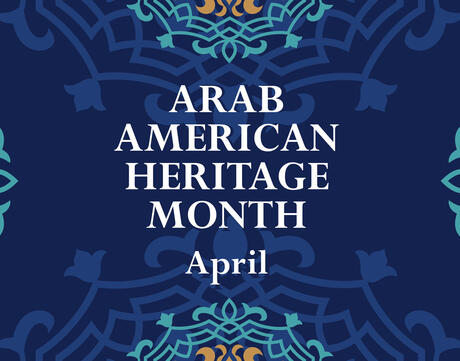
Honoring Arab American Heritage, Stories, and Changemakers
In 2022 President Biden officially declared April as Arab American Heritage Month. While the federal designation of this month is relatively new, the presence of people with Arab heritage in the United States dates back centuries. In celebration of this new commemorative month, Facing History has curated its first Arab American Heritage Month resource page to highlight the history of Arab people in the US, celebrate an array of Arab American changemakers, and share other useful resources for educators honoring this celebration in their classrooms. We look forward to bringing you more Arab American Heritage articles throughout the year.
Historical Background
The mass immigration of Arab people to the United States began in the late nineteenth century, spurred by promising economic opportunities, migration caused by famine, and the desire to escape political unrest. The majority of these early immigrants came from the Greater Syria region of the Ottoman Empire, which includes present-day Israel, Jordan, Lebanon, Palestine, and Syria. The actual number of Arabic speaking immigrants who entered the US prior to WWI is impossible to track as customs officials would group people coming through ports as Turkish (which encompassed anyone coming from the, at that time, vast Ottoman Empire) or incorrectly as Asians, Greeks, or Armenian.
The first wave of Arab immigrants were predominantly Christian and often had little to no formal education. Like so many new arrivals to America before them, their names were frequently shortened and Americanized without full understanding or consent. These turn of the century immigrants underscored the importance of higher learning to their American-born children, encouraging their sons and daughters to pursue college and elite professions.
The second wave of people from the Middle East moving to the United States followed both the end of WWII and a loosening of restrictions with the Immigration Act of 1965. From 1948 to 1966 around 80,000 Arab immigrants made the US their new home. At first many of these immigrants were ethnic Palestinians who were displaced due to the Arab-Israeli War of 1948. Later, after 1965, Egyptians, Syrians, Iranians, and Iraqis followed, often escaping political revolutions or government coups. In contrast with the first wave of Arab immigrants, this new wave was largely Muslim and educated —making the promise of American higher education opportunities and professional freedom very enticing.
Arab American Upstanders
Arab Americans have played a vital role in shaping modern America and have been leaders in social advocacy, scientific innovations, arts and culture, and other critical moments within our world history. Get to know some of the individuals who have helped lift up the stories and customs of Arab Americans and whose accomplishments have positively contributed to the fabric of our society.
Attorney - Fatina Abdrabboh
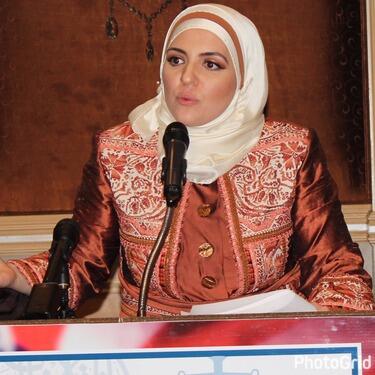
Attorney - Fatina Abdrabboh
Abdrabboh, an accomplished lawyer, serves as the Director of the American Muslim and Minority Advocacy League (AMAL), a group that defends the civil rights of all people and defends against all forms of racism. Learn more here.
Poet and Writer - Kahlil Gibran
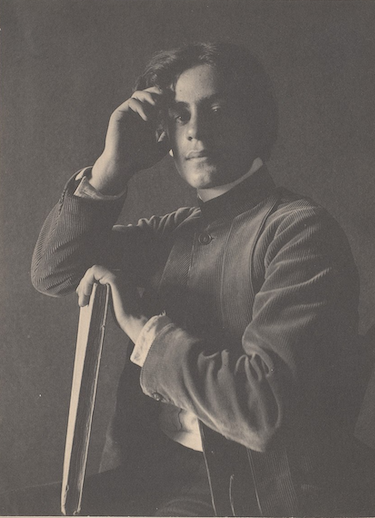
Poet and Writer - Kahlil Gibran
Gilbran is the author of the prose poetry collection The Prophet, one of the most translated and best-selling books of all time. In addition to his celebrated writing, which he did in both Arabic and English, he was also a successful visual artist. Learn more here.
Actor and Comedian - Maysoon Zayid
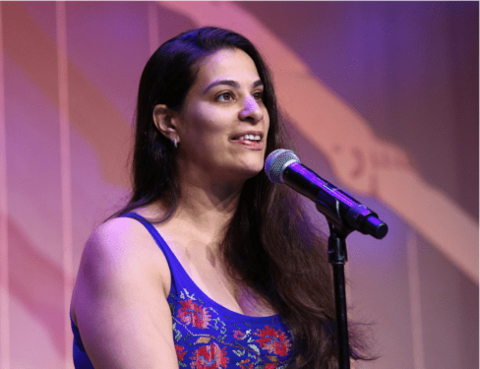
Actor and Comedian - Maysoon Zayid
A multi-hyphenate entertainer, Zayid has used her experiences both as a Palestinian American and as a person with cerebral palsy to advocate for these minority groups through comedy. She also presented one of the most popular TED Talks ever with an estimated view number of 1 billion.
Writer - Jack Shaheen
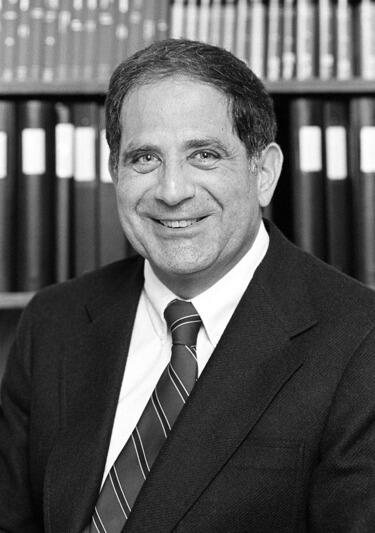
Writer - Jack Shaheen
When Shaheen’s young daughter pointed out to him the negative portrayal of an Arab in a Saturday morning cartoon she was watching, he realized how ingrained negative stereotypes of his people were in the media. He spent the rest of his life educating the public and urging media companies to transition away from these harmful tropes. Learn more here.
Congressperson - Rashida Tlaib
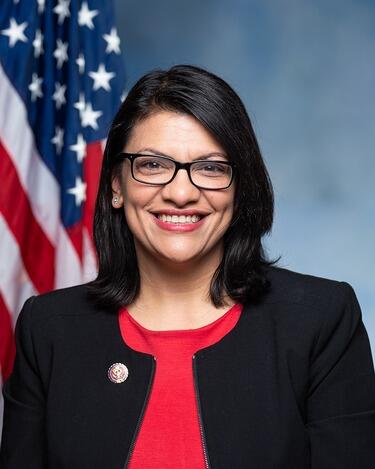
Congressperson - Rashida Tlaib
Tlaib is the first Palestinian American woman and first of two Muslim women to serve in the United States Congress. She currently represents Michigan’s 12th Congressional District, before which she worked as a lawyer for the Sugar Law Center for Economic and Social Justice. Learn more here.
Entertainer and Philanthropist - Danny Thomas
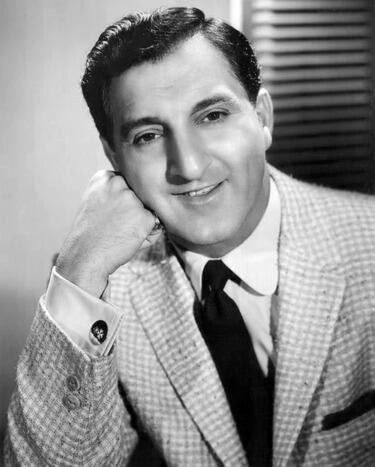
Entertainer and Philanthropist - Danny Thomas
Born Amos Muzyad Yaqoob Kairouz, Thomas was a famous singer and actor in radio, television, and film. He starred in the long-running eponymous sitcom the Danny Thomas Show where he did not shy away from portraying his Lebanese heritage. He is perhaps best known for his founding of St. Jude Children's Research Hospital. Learn more here.
Pediatrician and Professor - Mona Hanna-Attisha
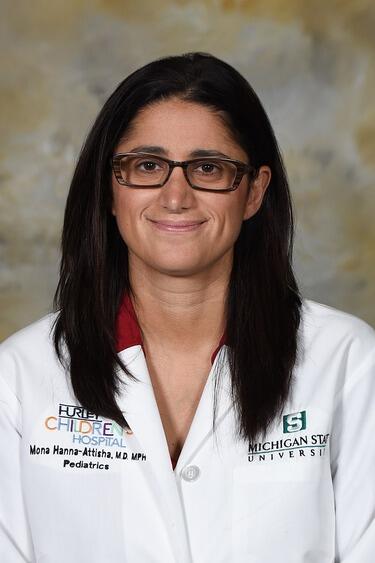
Pediatrician and Professor - Mona Hanna-Attisha
It was Hanna-Attisha’s public health advocacy that led to the exposure of Flint, Michigan’s lead poisoning in its city water supply. She has received numerous accolades and awards for her brave environmental health work. Learn more here.
Surgeon - Michael DeBakey
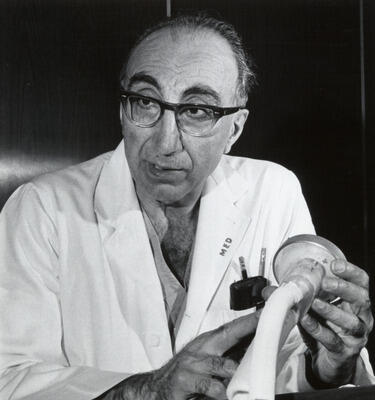
Surgeon - Michael DeBakey
While still in medical school, DeBakey (originally Dabaghi) invented a life-saving device called a roller pump which allowed for continuous blood flow in heart patients. His innovations and firsts within the field of vascular surgery defined his lauded career. Learn more here.




